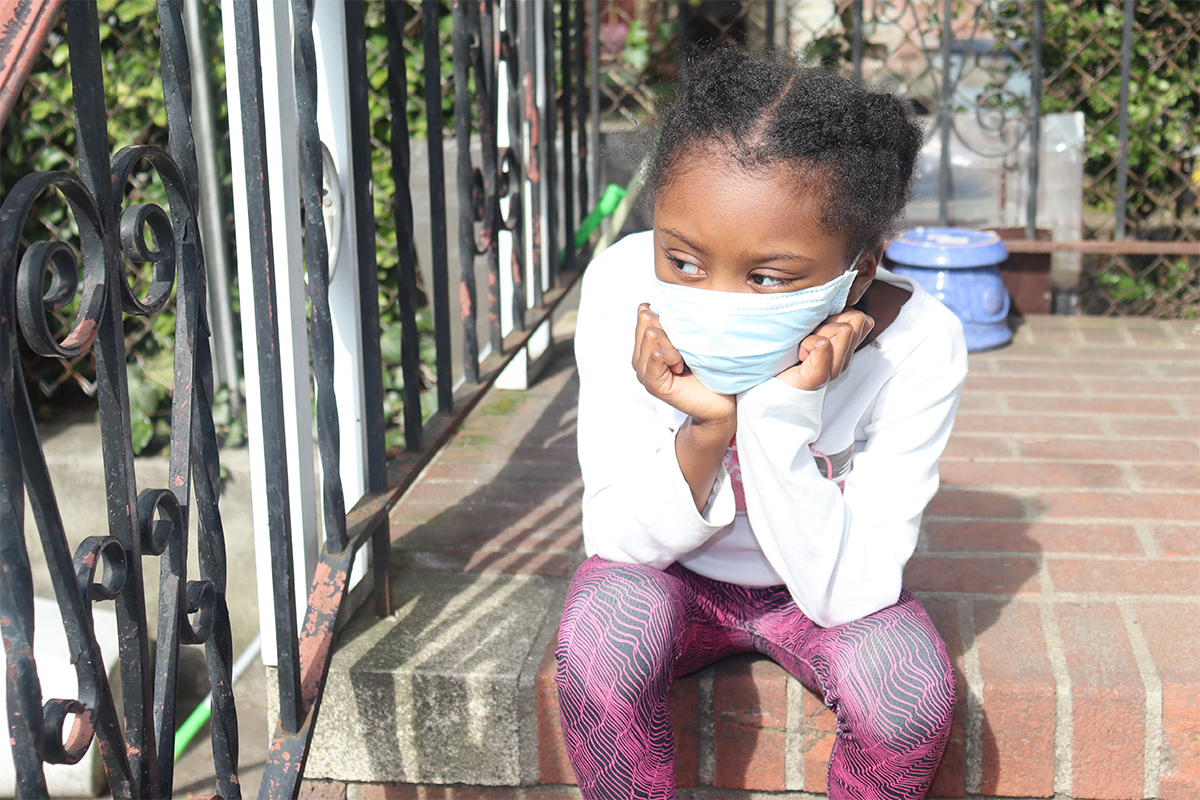Being a WIC Parent During the COVID-19 Pandemic – Part 1

Friday the 13th – it is a traditionally feared date due to its connotations of foreboding and bad luck. Our schools shut down on Friday the 13th of March 2020. I will always remember that date, as it sent a wave of panic through our household. We have 10-year-old twins and had to start homeschooling immediately with about 12 hours' notice.
We initially tried a "rotation" schedule at work to limit exposure, but as time went on, we were slowly expected to come back on a more "usual" schedule. While I was able to do some work from home like reading echocardiograms, it was limited since I had to be in the hospital for clinic, inpatient service, and TEEs in the OR.
It was challenging, to say the least, trying to juggle my work schedule with homeschooling and parenting. Pre-COVID-19, my husband worked in the entertainment industry and the kids were in public school with after school care.
All of that disappeared in the blink of an eye, including his work.

So, I went from being the primary breadwinner to being the sole breadwinner, which has been stressful.
While he has been unemployed, he has been able to stay home for the most part and help with childcare. However, he has had some other obligations that has necessitated him being out of the house. We are not in a financial situation for him to not work and be a stay at home parent forever – neither one of us are stay-at-home material.
When school was still an unknown in August, it raised a lot of anxiety for working parents, especially single parents or those whose financial situation may have changed. This was and is a systemic wide problem, affecting not only faculty but also staff, trainees and students.
These are concerns regardless of your gender, marital status, ethnicity and academic rank – although may affect some more than others.
There are so many issues at play, but I see three main concerns:
- Access to childcare, what are the options?
- Costs, even if some have access, people may not be able to afford childcare due to their financial situation or for students and trainees.
- Unease, for those with access and able to afford it, there may be other reasons that childcare is not feasible due to health concerns of others in the household.

A colleague had a childcare service where they sent random care givers to her house. One showed up saying the child she recently cared for was sick with a fever, so she was sent away. For some, going back to fulltime work as we knew it simply may not be an option, and there needs to be a societal and cultural shift to support those that need some flexibility in work scheduling.
Over the past few months of the COVID-19 pandemic, I think we have seen that although difficult too, there is some work than can be done effectively from home. Just because we are working from home does not mean that we are NOT working.
I want those reading this article to know they are not alone. I have heard junior faculty state many of the above concerns privately, but they are afraid to voice it for fear of being looked down upon.
Well, I am here to tell you that I am more than 20 years out of training, a full professor, and tired and struggling with all of the above, so please know you are not alone. We, as senior faculty, should acknowledge these concerns and help those who are struggling regardless of their rank.
I am grateful that we are having this discussion and proud to be part of it. So, what can be done to help?
Stay tuned for part 2.


